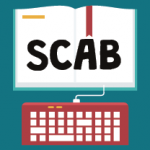
Steve Harrison – By @Alfie60428342

By Alfie Hardman
Steve Harrison
Are you having a laugh? I thought when Marc asked if I was a copywriter after reading one of my scripts. Sadly the copy was as diabolical – as the look on his face when I replied ‘yes’.
At that point in the course, it felt right to be outraged. We were a long way through the year and, even before SCA, I had an English Literature degree and a few abysmal short stories that I was still somehow proud of.
The truth was and probably still is that I’m no way near as good as I thought I was at writing ads. So much focus has been put on tweaking strategies and getting that core idea nailed. It’s not an excuse, but fuck it I don’t know what other reasons there are. My dyslexia? Please.
Anyway, A few weeks later I was given a copy of Steve Harrisons’ ‘How to Write Better Copy’ by Marc.
Here are some of the things in the book that have leaped out.
Your readers become engaged with what you have written when they can see themselves in the story you are telling.
In the absence of research, you will be doomed to rely more and more on adjectives.
What is needed is a story that puts its reader at the core.
Don’t write a list of features. By that, I mean what the product or service does. Think about these features in terms of the benefit they bring to the reader. Then explain them in that way.
Act 1: The reader’s problem
Act 2: The solution
Act 3: The resolution, or what the reader must do in order to get hold of the thing you are selling or adopt the idea you are proposing.
Anticipate the reader’s resistance. What are the obstacles I have to overcome in order to get them to say yes?
The length of your copy also depends on whether you are looking for a direct sale or whether you just want a lead.
Ogilvy – “On average, five times as many people read the headlines as read the body copy. When you have written your headline, you have spent eighty cents of your dollar.”
Use abruption to get your headline noticed. The orienting influence is when you see something novel, your reflexive response is to turn your head towards it, focus on it, still the rest of your body and just pay attention for a split second and see if it’s something that you need to evaluate more.
‘Black Friday Sale – Rape us now.’ Yes, it got noticed, but for all the woefully wrong reasons.
Let your subconscious do the work for you. Whether you’re working on a big campaign or a one-off web page, make sure you have read and re-read the brief. This immersion in the background is vital. Then write you headlines down on a pad, circling the OK ones first.
What to do when you’re stuck. You can start by writing ‘How to…’ plus the benefit you are offering.
Ask a question. When Buzzfeed isn’t attracting readers with their listicles, they’re doing so with quizzes. For example, they recently asked people to vote on whether a woman’s dress was white and gold or black and blue. The article got 38 million views.
Why readers like you to be predictable. The easier it is for them to tell where the story is heading, the more likely they are to read on.
When it’s your first draft write it quickly. I find I keep my original enthusiasm and at the same time outrun the self-doubt that is always waiting to settle in.
Write as you speak. Visualize the one person you want to influence, then sit that one person down across from you. Now talk to him or her through your pen.
If you go immediately into the benefit of the product, you might get ahead of yourself. By that I mean you are starting where you want the reader to be, as opposed to where the reader actually is.
Win your reader over with empathy.
Pick the words that have a commonly understood, fixed meaning.
Choose active verbs instead of passive verbs.
Writing chronologically is the best way to get your reader to look at your squiggles and visualize what is happening.
Someone suggested ‘Think Differently’. But Steve Jobs, like Stephan King, saw the energy-sapping weakness in modifying an active verb like ‘think’ with the adverb ‘differently’. Instead, he insisted on the less grammatically correct but much more powerful ‘Think Different’, in which different is the noun, as in the equally inspirational ‘Think Big’.
Use the most powerful short word of them all: you.
If you don’t correct your mistakes no one else will.
Read your work out loud.










